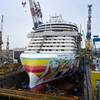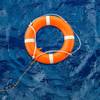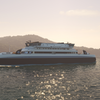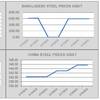A difficult year for Europe and likewise for the shipbuilding industry is ending with encouraging signals from European Institutions, which underline the importance of the sector and the respective understanding of policy makers. The Council, the Commission and the European Investment Bank have each concluded deliberations related to shipbuilding, much appreciated by the industry. The Council took note of a clear report by European Commission Vice President Tajani about the worrying business situation and short term prospects. A large number of Member States welcomed the initiative of the Commission and offered full support for the approach outlined. The Council reconfirmed its view of the shipbuilding and maritime technology industry as being of indispensable strategic importance and endorsed in particular to undertake a renewal of the strategic sectorial policy.
With the prolongation and streamlining of the Framework for State Aid to Shipbuilding the European Commission confirmed again that the specific nature of the industry requires specific reflection in the state aid rules. While falling short on a number of recommendations CESA and other stakeholders have made during the consultation process, the modifications now adopted are largely welcomed. In particular, the possibility for Member States to award an increased level of support for innovations which serve to protect the environment will be very useful for the industry. Already since 2008, horizontal rules applicable to all sectors allow support for eco-innovation up to 60% (80% for SMEs) of the eligible cost subject to certain conditions. The incorporation of respective provisions directly within the Framework will make the implementation for Member States easier, albeit at a reduced support rate of maximum 30% and a maximum eligible cost limit to 10% of the total investment, i.e. resulting effectively in a maximum aid of 3%. The Framework does not establish any preferential treatment nor any special subsidization.
With high appreciation, CESA has also taken note of the new Transport Lending Policy endorsed by the EIB Board of Directors last week.
The Bank will ensure that shipping projects it finances contribute to an overall improvement of the environmental performance of the fleet concerned. Furthermore, it will check, in close cooperation with the Commission services responsible, for the existence of any outstanding issues concerning (i) Intellectual Property Rights, (ii) potential breaches of trade agreements and, (iii) as far as possible, the risk of distortions caused by anti-competitive practices (including, inter alia, state aid, direct subsidization, injurious or below-cost pricing, or subsequent public rescue of bankrupt companies) in the producer country or in the shipyard concerned. The Bank will not finance shipping projects where such satisfaction cannot reasonably be obtained.1 Maritime industries play a vital role in Europe’s capability to address major global challenges including population growth and resulting challenges of security of basic supply of food and fresh water, depleting natural resources, and climate change.
Advanced technology is the precondition for a sustainable exploitation of the vast array of growth opportunities in various maritime operations. European companies in the field hold technology leadership but nevertheless face major challenges. The current deep crisis causes a serious threat to their long-term existence. Not only in the financial world, also for the real economy strategic policy decisions at European level are required to master such global challenges. Substantial restructuring of the industry is necessary and adaptation to the reduced demand level will be unavoidable. In that respect, the summarised policy decisions do not mark a turn-around. However, they put Shipbuilding back on the radar of policy makers making it a priority issue in industrial policy. CESA is convinced that these developments are leading the way towards the definition of a successful strategic path. Europe’s maritime leadership will also in future be able to generate prosperity and high skilled employment, provided the current difficulties are bridged.










